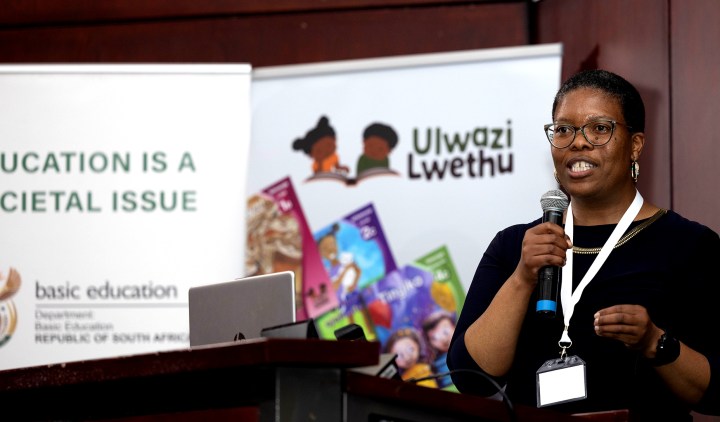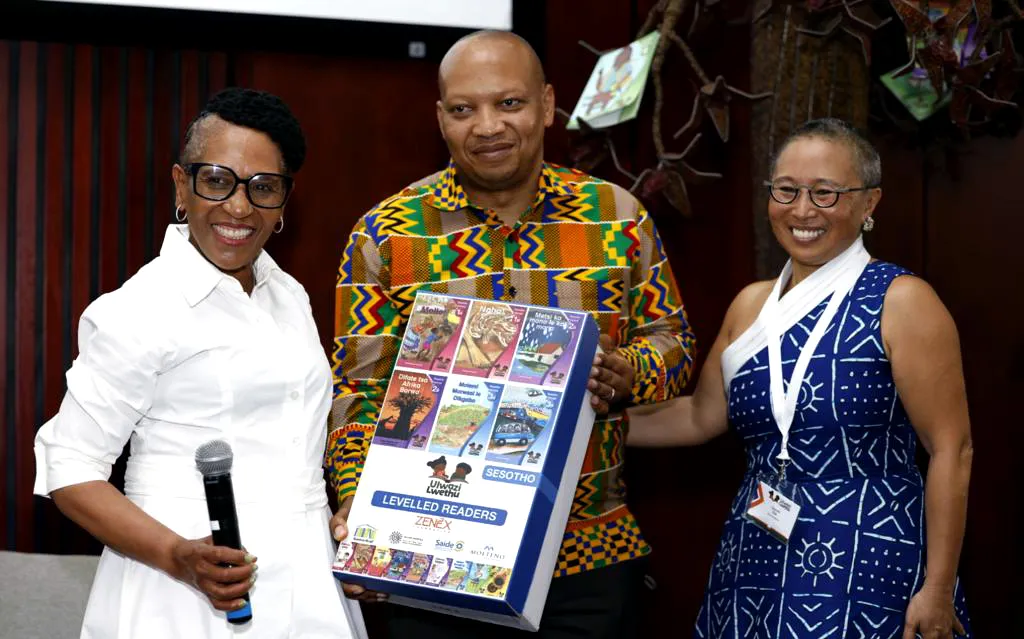AFRICAN LANGUAGES
Learning to read in a mother tongue is key to improving SA’s literacy rates, says foundation

At first, the Zenex Foundation believed that helping learners in Mathematics and Science was the best way to address the education crisis. Then it realised that, first, it needed to help learners with their home languages.
The Zenex Foundation and partner organisations have launched a series of African languages storybooks and reading material that can be used to supplement learner curriculums in an effort to improve the South African literacy rate.
According to the 2021 Progress in International Reading Literacy Study (Pirls) report released in May this year, 81% of Grade 4 learners in South Africa cannot read for meaning in any language, which shows an alarming increase from 78% in 2016. The report also found that it was mostly African language schools that recorded a decline in reading, while English and Afrikaans schools did not. Limpopo, North West, Free State and Mpumalanga performed particularly poorly.
Read more in Daily Maverick: International study shows most Grade 4s in South Africa cannot read for meaning
At the Zenex Foundation’s launch of the new reading material, literacy specialist and senior lecturer Dr Xolisa Guzula, from the University of Cape Town, said: “It saddens me to think that when we think about creating African language materials people say, ‘No, that can’t be done because they don’t have a standard language’.
“I think people need to get rid of that thinking … In our teaching of languages, we need to value the children’s varieties of languages when they come to our classrooms and see them as a continuum of what we must teach in schools.”
Guzula said the legacy of the Bantu education system still had a bearing on the teaching curriculum in that black children believed they received inferior education in African languages. She said parents now opted for their children to be taught in English, because African language teaching was considered inferior.
“So, the African child was not seen as someone who could read, who could have access to literature. The only books that were available were readers that only emphasised letter sounds with no meaningful content. There were no supplementary materials for African language-speaking children. It is now up to us to change that injustice that was created,” said Guzula.

A panel discussion with programmes manager at the Zenex Foundation Lauren Fok; research and development manager at Molteno Jenny Katz; researcher and deputy director at the Nelson Mandela Institute for Education and Rural Development, University of Fort Hare, Brian Ramadiro; literacy manager from Room to Read, Naomi Musitsa; and African Storybook partner development co-ordinator Smangele Mathebula. (Photo: Zenex Foundation)
Judgement-free materials
In a panel discussion during the launch, Lauren Fok, programme manager at the Zenex Foundation, said the creation and production of the books was possible through robust engagement with partner organisations representing different backgrounds, schools of literacy and reading. These included the Molteno Institute for Language and Literacy, the Nelson Mandela Institute for Education and Rural Development, Room to Read and African Storybook.
“We took the controversial decision to level our books rather than grade them. Many of the project partners felt that given the fact that we didn’t want children to feel judged if they couldn’t read at Grade 3 level, but could only read Grade 1 books, we chose to level our books from one to five and within that have sub-levels,” Fok said.
She went on to iterate that the books were also meant to support teachers and enable learners to be able to decode and understand letter and consonant sounds.
Research and development manager Jenny Katz from Molteno said: “Another big takeaway for us was the opportunity for the development of people who want to work in this field but have never been given the opportunity … amateur illustrators, aspiring story writers. And, because we have a more scientific approach to teaching how to read, we were actually also able to educate in linguistics and approaches to teaching reading in African languages.”
Katz also pointed out that one of the good things about the books was that they did not only focus on the most widely spoken languages but also included languages such as isiNdebele, Tshivenda and Titsonga.
“Writing for children is such a specialised skill. You have to know children, you have to use the correct language, you have to have read children’s literature, because by practising something yourself, you can do it well, you have to think like the child … So, this is so important for our country, because the more storybooks our children are exposed to, hopefully we’ll have our next generation of writers,” Katz added.
“Storybooks are really important in encouraging reading. It’s not graded readers above storybooks; they work side by side to encourage fun, focus and learning. In terms of developing non-fiction, it’s difficult anywhere, even in English for children.
“So, we had to invite our authors to write storybooks that were aligned to CAPS [ Curriculum Assessment Policy Statements] that dealt with knowledge concepts, explored science, nature, relationships and Covid … I love that our books really prioritise the journeys that children take because we’re not just giving them knowledge. We’re also working and building on the knowledge they carry and saying that reading is fun,” African Storybook’s Smangele Mathebula said during the panel discussion.

Chairperson of the Zenex Foundation Thandi Orleyn speaks at the launch of Ulwazi lwethu African languages storybooks and readers. (Photo: Zenex Foundation)
Rich in meaning
Speaking of the Ulwazi Lwethu readers and storybooks, which she had to review individually, Guzula said she found that they were quite rich in content and meaning.
She said that there was a difference between books that were written in English and then translated, often watering down nuance and content, and books specifically written in African languages, which maintained the integrity of the content of the stories.
Guzula said the books were also a way of expanding on culture, challenging gender stereotypes and historiographies. She said they taught children to engage critically with literature as well as critique issues of societal power dynamics.
Thandi Orleyn, chairperson of the Zenex Foundation, said she hoped the books would be “a living legacy for our great-grandchildren”. She said the foundation started off focusing on the infrastructure needs of schools, but had now expanded to focus on “capturing the minds of children”.
“In doing so, we thought that Maths, Science and Accounting was the route to go, and that’s when we realised that without your home language, you can’t understand the language of Maths and Science, and even as you pretend to understand English, you actually don’t.”
Orleyn said this is why it was important for the foundation to rethink its strategy towards education in order to have the most impact. She highlighted that the launch was significant in that it was happening during what the United Nations has named the international decade dedicated to indigenous languages. DM


















 Become an Insider
Become an Insider
This is such a wonderful initiative (i am in awe) – gave me a sense of hope for the literacy rate in our country. I also launched a book club in my community library – Langa Township, and the reason behind my initiative was the alarming illiteracy rates in the country.
If we can have these programmes across the country – a culture of reading can be made and the illiteracy rates will definitely be ameliorated.
The PIRLS results are concerning. How, 30 years after Apartheid ended did we get to this point? Is it just that we don’t have appropriate reading materials or is the problem more complex? While initiatives like this one from Zenex are good, the problem with solutions is always about scale. Surely resources like these should be part of what teachers have as part of their basic materials rather than needing to download and print?